Scalloped tongue is usually a non-painful condition in which the sides of the tongue have a wavy or rippled appearance. These ridges on the side of your tongue may develop due to dehydration, sleep disorders, anxiety, nutritional deficiencies, and several physical conditions. It’s very rarely considered a serious problem, so consulting with a doctor is needed.
This Condition, called Scalloped tongue, is also known by several terms, such as wavy tongue, rippled tongue, crenated tongue, lingua indentation, and pie crust tongue. This blog post briefly explains the causes of the scalloped tongue, its diagnosis, and ways to treat it.
What Does Scalloped Tongue Mean?
A scalloped tongue is a condition in which the edges of the tongue look wavy or have a ridged, scalloped pattern. While scalloped tongues are generally harmless and not dangerous, they can sometimes be a sign of serious health issues like hypothyroidism, genetic disorders, and sleep apnea. Consulting a doctor is necessary to determine the seriousness of a scalloped tongue.
Scalloped tongue causes
If you have a wavy or indented edge on your tongue. Then, it is a scalloped tongue, most often caused by the tongue pressing against the teeth. Also, there are some other causes of the scalloped tongue. They are,
- Tongue Swelling (Macroglossia)
- Bruxism (Teeth Grinding)
- Sleep Apnea
- Nutritional Deficiencies
- Dehydration
- Anxiety or Stress
- Genetics
Tongue Swelling (Macroglossia)
When your tongue is enlarged, it may press against the teeth, leading to a scalloped appearance. This is a common cause of scalloped tongue.
However, swelling can be due to infections, allergies, or conditions like hypothyroidism (a lack of thyroid hormone production). If you have hypothyroidism, you can experience hair loss, acne, low blood pressure, and a scalloped tongue.
Bruxism (Teeth Grinding)
Teeth Grinding or clenching often during sleep can put pressure on the tongue and cause it to indent along the edges.
Sleep Apnea
People with sleep apnea often have larger tongues, which can press against the teeth and create scalloping.
Nutritional Deficiencies
A lack of certain vitamins and minerals, such as B vitamins, iron, or magnesium, may contribute to tongue swelling and scalloping.
Dehydration
Dehydration can lead to tissue swelling, including the tongue, which may then press against the teeth. The only way is to be hydrated enough to avoid a scalloped tongue due to hydration.
Anxiety or Stress
Stress can lead to unconscious habits like tongue thrusting, where you will press your tongue against the teeth, which might cause scalloping over time.
Genetics
Scalloped tongue condition is a potential genetic disorder. Some people may naturally have a larger tongue or other oral features that make them more prone to a scalloped tongue.
Diagnosing a scalloped tongue
The scalloped tongue does not cause any serious health issues. But if you have severe pain that lasts a long time, you should consult a dentist.
Identifying the root cause of the scalloped tongue is needed to get the correct treatment method and avoid unnecessary complications. The dentist can only identify it through symptoms. So, conveying your symptoms to the healthcare provider is the first step of the consultation.
How Scalloped Tongue Is Treated?
During Diagnosis, the doctor identifies the root cause of the scalloped tongue. Based on the cause, the doctor will provide treatment. Some of the common causes and methods of treating them are listed below.
Bruxism (Teeth Grinding)
Mouthguards or splints are often prescribed to wear at night to prevent grinding. Stress management techniques, like meditation, may also help reduce grinding.
Sleep Apnea
Treatment may involve using a CPAP (Continuous Positive Airway Pressure) machine or other oral devices to keep the airway open during sleep. This can relieve pressure on the tongue.
Nutritional Deficiencies
Supplements for B vitamins, iron, or magnesium can be recommended. A balanced diet of essential nutrients may also help reduce tongue swelling.
Dehydration
The primary approach is increasing water intake. Staying hydrated helps reduce tongue swelling and prevent it from pressing against the teeth.
Anxiety or Stress
Stress management techniques like deep breathing, therapy, or relaxation exercises can reduce tongue thrusting habits. In some cases, a mouthguard can also help relieve pressure.
Genetics
Suppose a scalloped tongue is due to natural oral anatomy. Then, treatment may involve managing symptoms rather than altering the structure. Dentists might recommend specific oral devices to reduce discomfort.
When to See a dentist for Scalloped Tongue
- When you have a scalloped tongue for an extended period and have higher pain than usual, visiting a dentist can help.
- If you face severe symptoms accompanied by a scalloped tongue, visit a dentist.
- If you still have scalloped tongue even after hydrating or stopping the habits that cause scalloped tongue.
If you have a scalloped tongue, it is best to visit a dental doctor. Doctors can identify a severe condition and the habits that cause it.
Takeaway
Scalloped tongue is not dangerous and is also a non-painful condition in most cases. However, visiting the dentist can help you identify the root cause of the scalloped tongue and help dentists recognize other health conditions like hypothyroidism. Contact Surya Dental Care to get the best diagnosis and treatment for the scalloped tongue.
FAQs
Ridges on the sides of the tongue are often due to scalloping caused by pressure from teeth. This can occur from habits like teeth grinding or clenching. Other causes may include dehydration or certain medical conditions that cause swelling of the tongue.


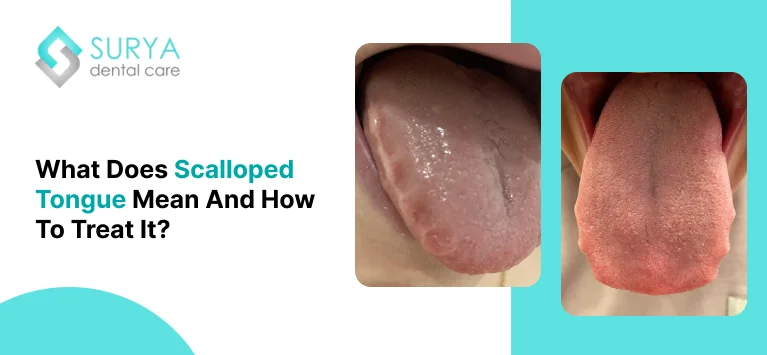




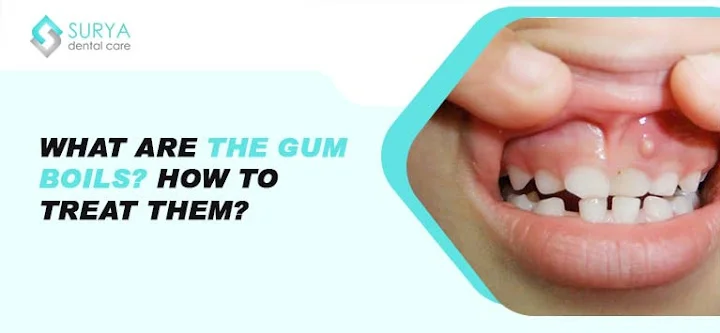



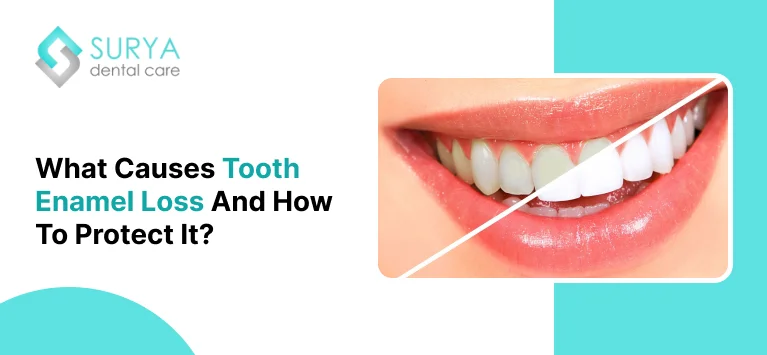
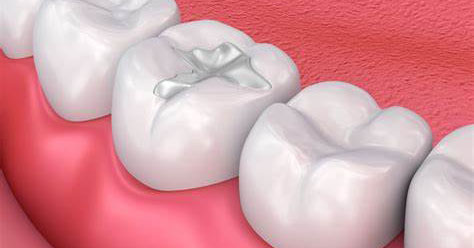

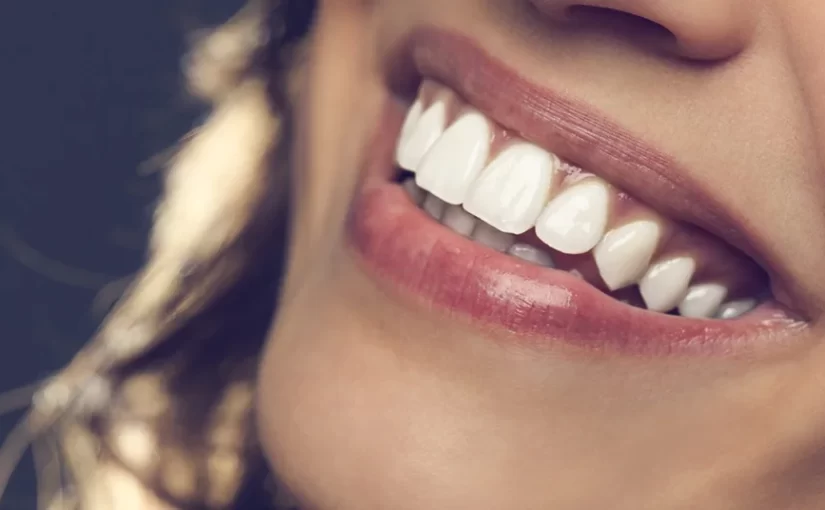
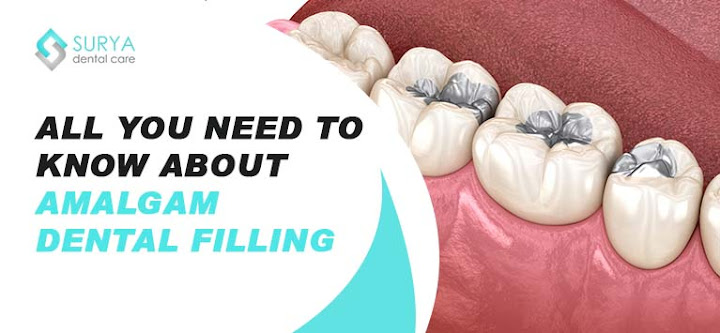





Leave a Comment